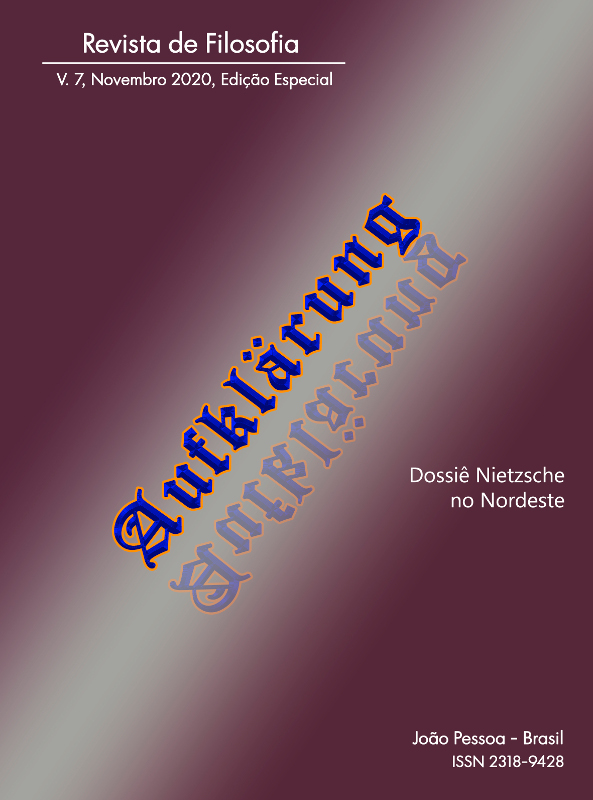Art and Pessimism in “The Birth of Tragedy”
DOI:
https://doi.org/10.18012/arf.v7iesp.56768Keywords:
Nietzsche, art, pessimism, tragedy, truthAbstract
Taking Nietzsche's reflections in the “Essay of Self-Criticism” as a guiding thread, the article seeks to reflect on the relationship between art and pessimism, a relationship that, according to Nietzsche, constituted the puzzle and the fundamental problem of the Greek world. The relationship between tragedy and pessimism, conceived as "pessimism of strength", is the central issue of our study, here thought from the original tension between the artistic impulses of nature, the Apollonian and the Dionysian. Therefore, it is also necessary to think about the relationship between art and truth, between tragic thought and its dissolution by theoretical, Socratic-Platonic thought.
Downloads
References
ARISTÓTELES. Poética. (edição bilíngüe). Tradução de Eudoro de Souza São Paulo: Ars Poetica, 1993.
GOETHE, Johan Wolfgang Von. Fausto: uma tragédia (edição bilíngüe). Tradução de Jenny Klabin Segall. São Paulo: Ed. 34, 2004.
HÖLDERLIN, Friedrich. Hyperion oder der Eremit von Griechenland. Wiesbaden: R. Löwit, s.d.
NIETZSCHE, Friedrich. Sämtliche Werke: Kritische Studienausgabe in 15 Bänden. München: Deustscher Taschenbuch Verlag de Gruyter, 1999.
NIETZSCHE, Friedrich. Poemas. Tradução de Paulo Quintela. Coimbra: Centelha, 1986.
OTTO, Walter F. Dionysos. Mythos und Kultus. Frankfurt am Main: Vittorio Klostermann, 1960.
Additional Files
Published
How to Cite
Issue
Section
License
Journal general policy
1.This journal works under a Creative Commons License aplied to online journals. That icence can be read in the following link: Creative Commons Attribution 4.0 International (CC BY 4.0).
2.Accordingly to this License, a)the journal declares that authors hold the copyright of their articles without restrictions, and they can archieve them as post-print elsewhere. b)the journal allow the author(s) to retain publishing rights without restrictions.
Metadata Policy for information describing items in the repository
1. Anyone may access the metadata free of charge at anytime.
2.The metadata may be re-used in any medium without prior permission, even commercial purposes provided the OAI Identifier or a link to the original metadata record are given, under the terms of a CC BY license refered for the Journal.







































